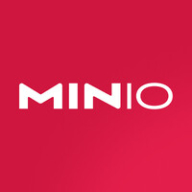


Amazon EFS and MinIO are competing in storage solutions, each with distinct strengths. Amazon EFS is often preferred for its seamless integration with AWS, whereas MinIO is favored for its high-performance object storage capabilities.
Features: Amazon EFS offers scalability, elasticity, and integration with AWS services, making it ideal for dynamic storage needs. MinIO provides high-speed performance, strong data protection, and supports S3-compatible API, which is advantageous for extensive data operations.
Room for Improvement: Amazon EFS could improve by offering more customization options and enhancing its data protection features. Users have sometimes found the service to be restrictive in non-AWS environments. MinIO could refine its documentation to help new users and improve solutions for large-scale deployments. Its interface can be optimized for higher user-friendliness.
Ease of Deployment and Customer Service: Amazon EFS integrates effortlessly with AWS services, offering a straightforward deployment and standardized support. MinIO facilitates flexible deployment across on-premise, private, and public clouds with a comprehensive community support system and detailed documentation.
Pricing and ROI: Amazon EFS uses a pay-as-you-go pricing model, potentially resulting in higher costs for large-scale operations but offering strong ROI due to AWS integration benefits. MinIO, with both open-source and commercial versions, provides cost-effective setups and significant ROI, allowing for customized deployments that appeal to budget-conscious buyers.
| Product | Market Share (%) |
|---|---|
| MinIO | 16.8% |
| Pure Storage FlashBlade | 5.2% |
| Amazon EFS (Elastic File System) | 1.1% |
| Other | 76.9% |



| Company Size | Count |
|---|---|
| Small Business | 11 |
| Midsize Enterprise | 11 |
| Large Enterprise | 21 |
| Company Size | Count |
|---|---|
| Small Business | 6 |
| Midsize Enterprise | 4 |
| Large Enterprise | 8 |
| Company Size | Count |
|---|---|
| Small Business | 11 |
| Midsize Enterprise | 4 |
| Large Enterprise | 9 |
FlashBlade is the industry’s most advanced scale-out storage for unstructured data, powered by a modern, massively parallel architecture to consolidate complex data silos (like backup appliances and data lakes) and accelerate tomorrow’s discoveries and insights.
Amazon Elastic File System (Amazon EFS) provides simple, scalable file storage for use with Amazon EC2 instances in the AWS Cloud. Amazon EFS is easy to use and offers a simple interface that allows you to create and configure file systems quickly and easily. With Amazon EFS, storage capacity is elastic, growing and shrinking automatically as you add and remove files, so your applications have the storage they need, when they need it.
When mounted to Amazon EC2 instances, an Amazon EFS file system provides a standard file system interface and file system access semantics, allowing you to seamlessly integrate Amazon EFS with your existing applications and tools. Multiple Amazon EC2 instances can access an Amazon EFS file system at the same time, allowing Amazon EFS to provide a common data source for workloads and applications running on more than one Amazon EC2 instance.
It’s designed for high availability and durability, and provides performance for a broad spectrum of workloads and applications, including Big Data and analytics, media processing workflows, content management, web serving, and home directories.
MinIO is an open-source object storage system. It is designed to efficiently store and retrieve unstructured data, such as photos, videos, and backups. MinIO can be used as a standalone object storage server or as part of a larger system, such as a data lake or a private cloud, and can be deployed on-premise, in the cloud, or in a hybrid environment, making it a flexible storage solution for a variety of use cases.
MinIO’s features include erasure coding, bitrot protection, and checksum validation, which help ensure data integrity and reliability. The solution’s multi-tenancy support makes it ideal for multi-user environments. MinIO’s edge computing tools enable data storage and processing closer to users' locations, reducing latency and improving performance. MinIO can easily scale to accommodate storage and power demands, making it ideal for use in large-scale, data-intensive environments.
MinIO Benefits and Features:
MinIO offers several key benefits and features for organizations looking for a scalable and high-performing object storage solution:
Reviews from Real Users
MinIO stands out among its competitors for a number of reasons. Several major ones are its flexibility, integration options, and performance.
Süleyman Fazıl Y., a senior software engineer at a tech services company, writes, “The most valuable features are that MinIO is open, it works on-premise, and is compatible with the Amazon industry which is great for finding compatible libraries in many languages which is very good for developers.”
Rebecca S., CTO at NIASE, says, “MinIO is much improved over the prior solution, updates are simple to apply, and we anticipate that future capacity requirements will be easier to meet. Our customers are using this solution to retrieve tens of thousands of objects (documents and files) per hour, and MinIO seems to be able to keep up with it.”
We monitor all File and Object Storage reviews to prevent fraudulent reviews and keep review quality high. We do not post reviews by company employees or direct competitors. We validate each review for authenticity via cross-reference with LinkedIn, and personal follow-up with the reviewer when necessary.